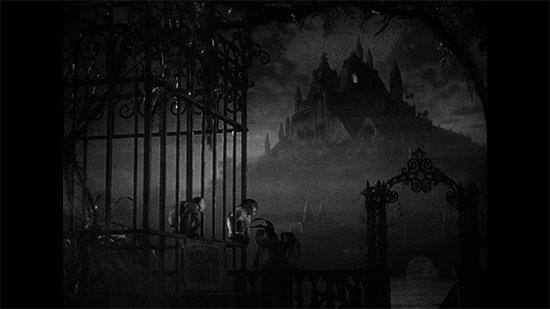Probably the most interesting thing about #gamergate and #notyourshield is how clearly they demonstrate the ease with which movements without centralized organization can be trivially stigmatized by selectively focusing on extremists within the movement.
You saw the same thing with Occupy a couple years ago and you’re going to see a lot more of it: The rise of mass social media platforms allow large, populist, grassroots movements to spontaneously organize… but they also mean that literally any crackpot within that movement has access to the loudspeakers.
You can argue that this is a “no true Scotsman” fallacy, but it’s more of an open question: There are going to be crazy Scotsmen. You’re going to have to decide whether you’re going to write off every single Scotsman because of the crazies or whether you’re going to consciously develop a better and more nuanced filter.
And before you make that decision you should take a moment to reflect on this: All of those ideologies and movements you self-identify with? They’re full of crazy people, too.
THE PRIMITIVE TRIBALISM
Your immediate response to that may be, “There are no crazy people in my ideology!” And, frankly, that’s part of the problem here
Human nature gravitates towards fierce tribalism: We filter out or subconsciously minimize the bad behavior of people in our own groups, but we instinctively cherry-pick the bad behavior of groups we don’t identify with and quickly assume they’re representative of the entire group.
For example, you may be among the people who consider #gamergate to be nothing but a bunch of misogynists throwing around death threats. More power to you. But let’s apply the same standards to a few other groups:
Michael Bay receives a lot of death threats for making shitty movies. (Particularly shitty Transformer movies.) Does this mean that everyone who dislikes a Michael Bay movie is a terrorist?
During the George W. Bush administration there were a lot of Democrats who sent him death threats. Does this mean every single Democrat is a scumbag? Do the death threats received by Obama make every single Republican a psycho?
Christian Ponder and his wife were digitally stalked and repeatedly threatened with death because Christian Ponder isn’t a great NFL quarterback. Does this mean that all football fans are assholes?
RPGPundit is an asshole… does this mean that D&D 5E is terrible? Does it mean that people who play RPGs in general are assholes?
When you dip your brush in tar you can choose to paint carefully with it or just spray it around the room without care. The first question you have to ask yourself is whether or not that’s fair to the people you’re tarring. The second question you have to ask yourself is whether or not you, personally, are being best served by surrendering to these tribalistic instincts: Is your life richer or better because you’re vilifying entire ideologies for the actions of some of the people who profess belief in them? Or are you robbing yourself of a deeper and richer understanding of the world around you?
THE ESCALATION OF TRIBALISM
The other thing to consider is the degree to which the tar-spraying is directly contributing to the problem. And #gamergate actually provides a great example of how this tribalism senselessly escalates.
There are a lot of narratives that can be constructed around the origins of the #gamergate movement, but for our purposes I’m going to start by looking at one of the earliest controversies involving Zoe Quinn: Her accusation that the Wizardchan board harassed her.
Zoe’s version of this event is relatively simple: Two anonymous users on a site with several thousand registered users posted messages which were hostile towards her and misogynist in general. She then received phone calls which she assumed came from the Wizardchan users. Her conclusion was that the entire Wizardchan board was targeting her for harassment.
Some people have questioned Zoe’s truthfulness. Some people have claimed that she deliberately manufactured the “crisis” in order to generate free publicity for her game. But the only thing required for this situation to exist is simple tribalism: Zoe (and her supporters) identified the Wizardchan board as being the “other”, saw the bad behavior of a few, and decided that it must be representative of the entire board.
Of course, it doesn’t end there.
People from Wizardchan put together a series of compilation rebuttal images attempting to demonstrate that the bad behavior was not representative of the board in general. These images then attempted to “turn the table” on Quinn by accusing her of all sorts of bad behavior and then culminated in this:
So, when she saw the posts, she saw the perfect opportunity to get what she wanted: like many before she used those to make up a situation where she was the victim of harassment, hoping to get pity and, by proxy, fame and recognition.
And then goes onto a list a number of other women who have reported abuse in order to cast doubt on all their claims.
As we previously assumed that everything Zoe Quinn said was true, let’s now assume that everything the Wizardchan defenders claim was true: Why should that suddenly villainize the entire class of “women who claimed game-related abuse”?
Well, for the exact same reason that Quinn attacked Wizardchan in the first place. Only the polarity has been reversed.
In this, we can see how this tribalism needlessly escalates antagonism: Zoe attacks a community because of the actions of a few members of that community. The members of that community, being attacked, react by attacking the entire group which Zoe is only one small part of.
Fast forward several months later and we can see the exact same dynamic of Mutually Assured Tribalism continuing: The anti-GGers claim that the death threats coming from other anti-GGers must be “false flag” efforts because they would never do such a thing; the GGers claim that the anti-GGers who are being doxxed must be faking it because no true GGer would ever do such a thing.
Deny the bad behavior of your own tribe. Seek out the bad behavior of other tribes. It’s a vicious and painful circle unless you can muster the willpower to rise above it.
THE USELESS EXPECTATION OF GODLIKE POWERS
This, however, leads to another excellent example of tribalism at work: The loud and self-righteous claims that, “If Group X wasn’t really for killing kittens then the members of Group X would stop other member of Group X from talking about kitten killing!”
There are two major problems with this. First, it’s built upon the false expectation that the members of Group X possess some sort of godlike power to control the voice of everyone else in Group X. (In the era of mass social media there’s simply no reason to expect that to be true.)
Second, in practice it’s generally just a slightly more sophisticated manifestation of tribalism: You are ignoring the people in Group X who are disavowing the bad behavior of their “comrades” because you’re subconsciously cherry-picking the bad behavior. (This often takes the form of rationalizing away the disavowals using some variation of “they’re just pretending; after all, we know they’re all bad guys, right?”.)
The fun part is that this really ramps up the tribalism: Since you’re open to the good stuff people on your “side” are doing, you acknowledge all the people on your side disavowing the bad behavior. Then you see people on the “other side” claiming that nobody on your side is disavowing the behavior. Clearly those people are lying… and since you stigmatize the entire group based on the behavior of the few, they must all be liars. So you call them liars and… oh, hey. Now you’re one of the guys engaging in bad behavior. (Which, of course, means that everyone on your side engages in bad behavior, which results in the other side… Rinse. Wash. Repeat.)
THE MORAL OF THE STORY
Shitty people are everywhere.
Does this mean we should ignore them? Or tolerate them? Or wink at their “little indiscretions” (which are actually horrific more often than not)?
Absolutely not.
But we also shouldn’t empower the assholes to discredit entire ideologies through the mere fact that they self-identify with those ideologies. And that remains true even if a particular asshole is expressing their jackassery through the ideology: Someone claiming that all men should be murdered doesn’t mean that women suddenly no longer deserve the right to vote. Reprehensible people making criminal threats against Anita Sarkeesian’s life because her videos aren’t very good don’t make her videos immune to all criticism.
Of course, none of this is going to make the shitty people go away. In an era of mass social media, the megaphones are too cheap, too readily available, and too easy to hear. But you’ll improve your own life by keeping your mind open (instead of locking whole swaths of humanity out of it). You’ll improve the public discourse by continuing to contribute to it (instead contributing to tribalistic feuds).
And I think you’ll also find yourself a lot less angry and depressed at the world around you. Because while there may be shitty people everywhere, there’s not nearly as many of them as those trapped in tribalism would like to think.

















